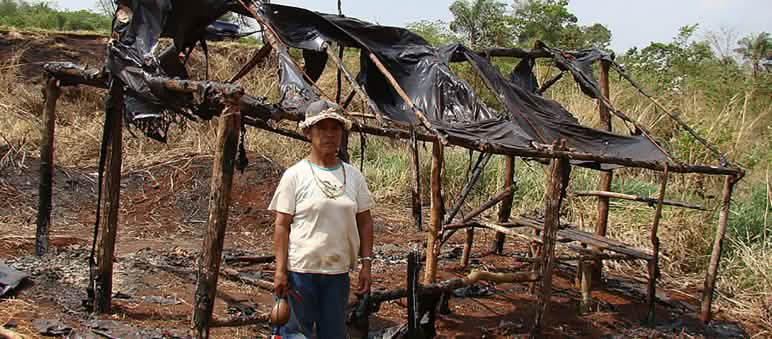
Biofuel: Shell backs out of indigenous territory
Ethanol fuel produced from sugar cane can make life sweeter – but only for those who sell it. The Guarani Indians in contrast had to endure tremendous suffering. Shell is now finally drawing conclusions and has promised not to source from indigenous territory anymore.
Ethanol produced from sugar cane can make life sweeter – but only for those who sell it. The Guarani Indians in contrast had to endure tremendous suffering: The agrofuel company Raizen founded by Shell had sugar cane grown on their land from 2010 onwards. From this bromegrass ethanol fuel is produced.
The Guarani were forced off their own land and now live in camps along the roadside or in overcrowded reservations. Their rivers have been contaminated by the plantation's pesticides, there is not enough drinking water available. Time and again the plantation owners use them as extremely cheap workers. They even hired armed men to kill the Guarani's leaders.
In the course of international protests, the company has now backed out of the Guarani territory. For the future it claims not to purchase any more sugar cane from officially recognized indigenous land and aims to consult the FUNAI (Brazilian agency for indigenous interests) prior to investments. The Guarani welcome this decision.
Rainforest Rescue had collected 16.415 signatures and handed them over to Shell. In this manner we supported the long running Survival International campaign. „Ethanol fuel is not only ruining the Indians, but also nature and the climate. In order to create new energy plantations, the tropical forests end up in smoke“, Klaus Schenck, Rainforest Rescue's forest and energy consultant explains.
